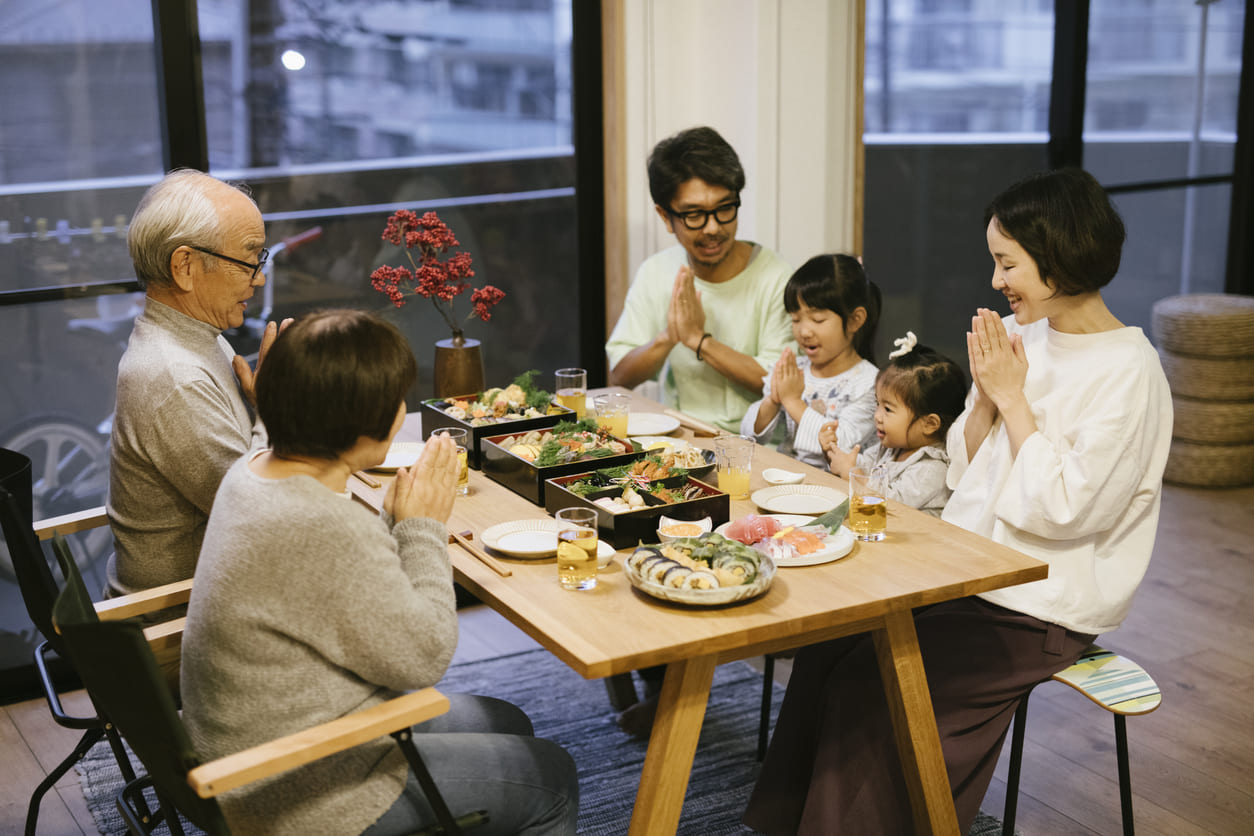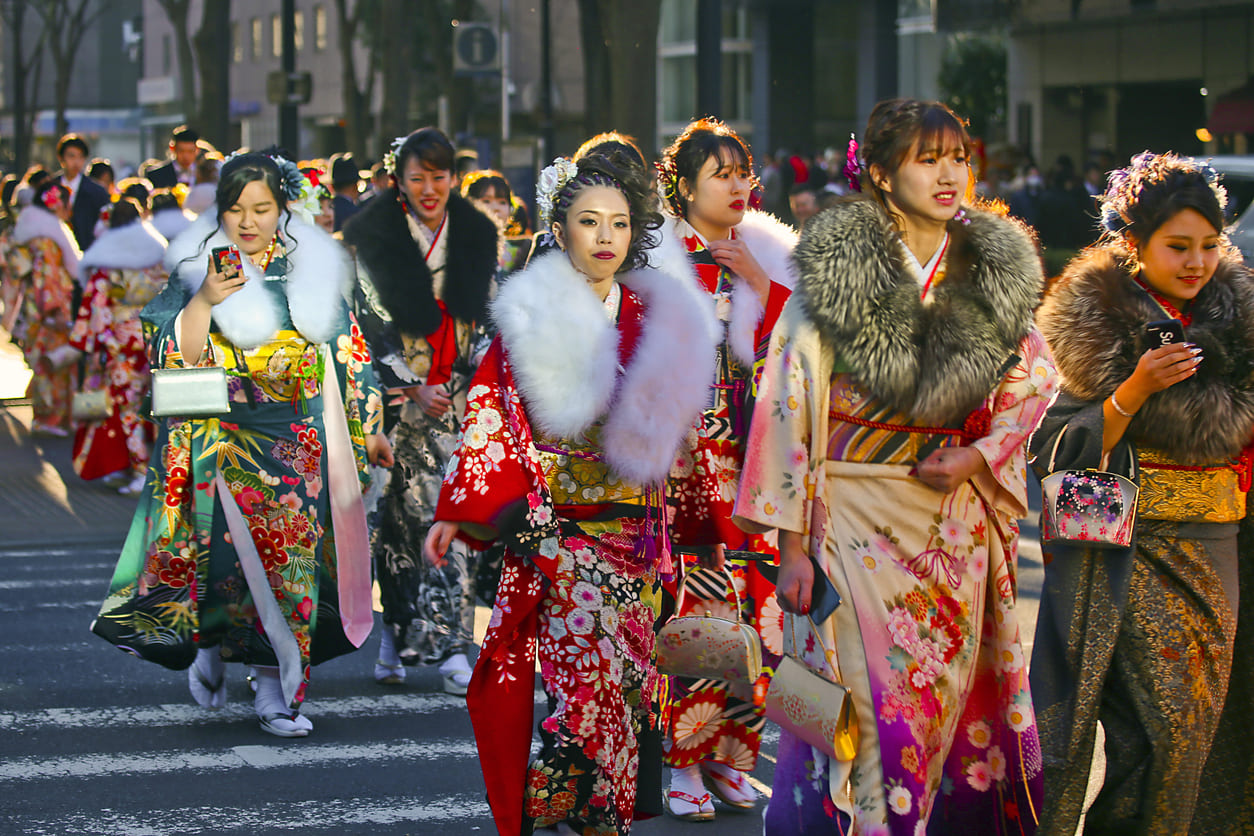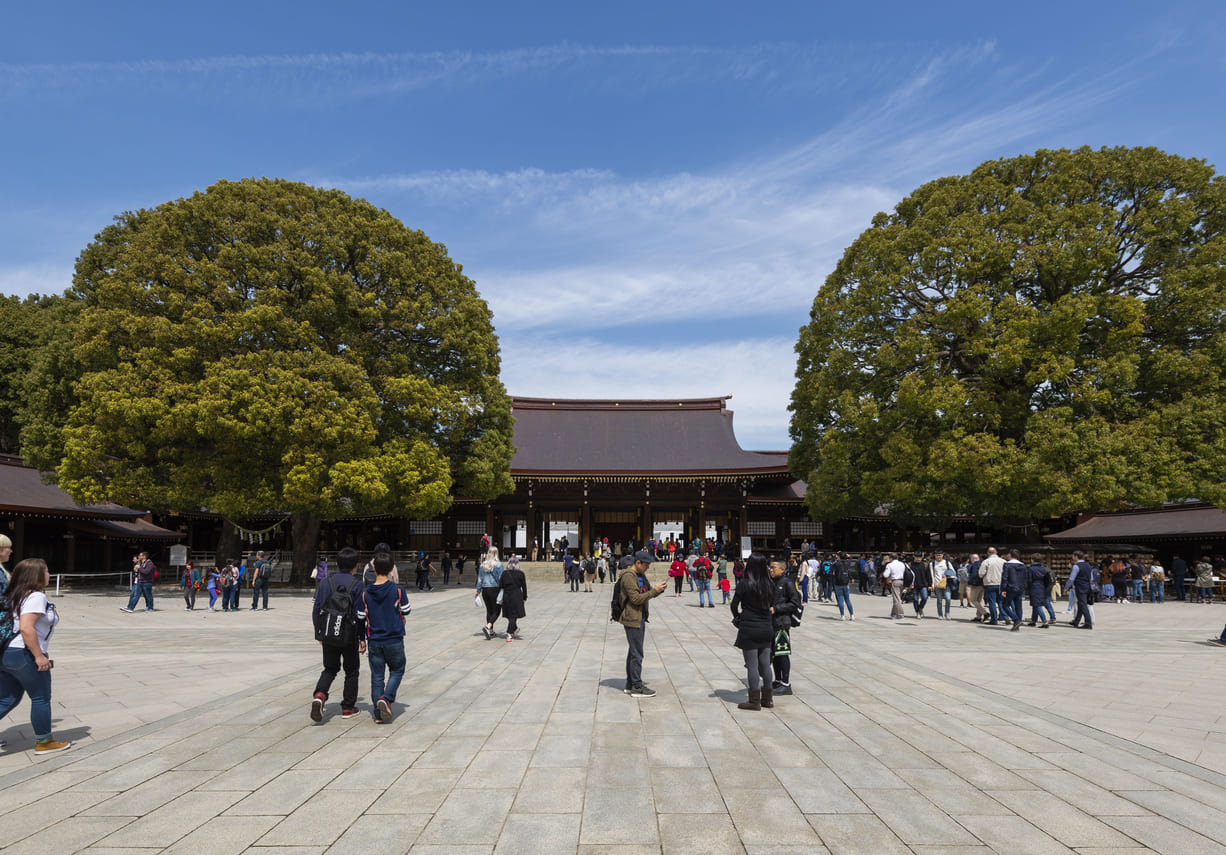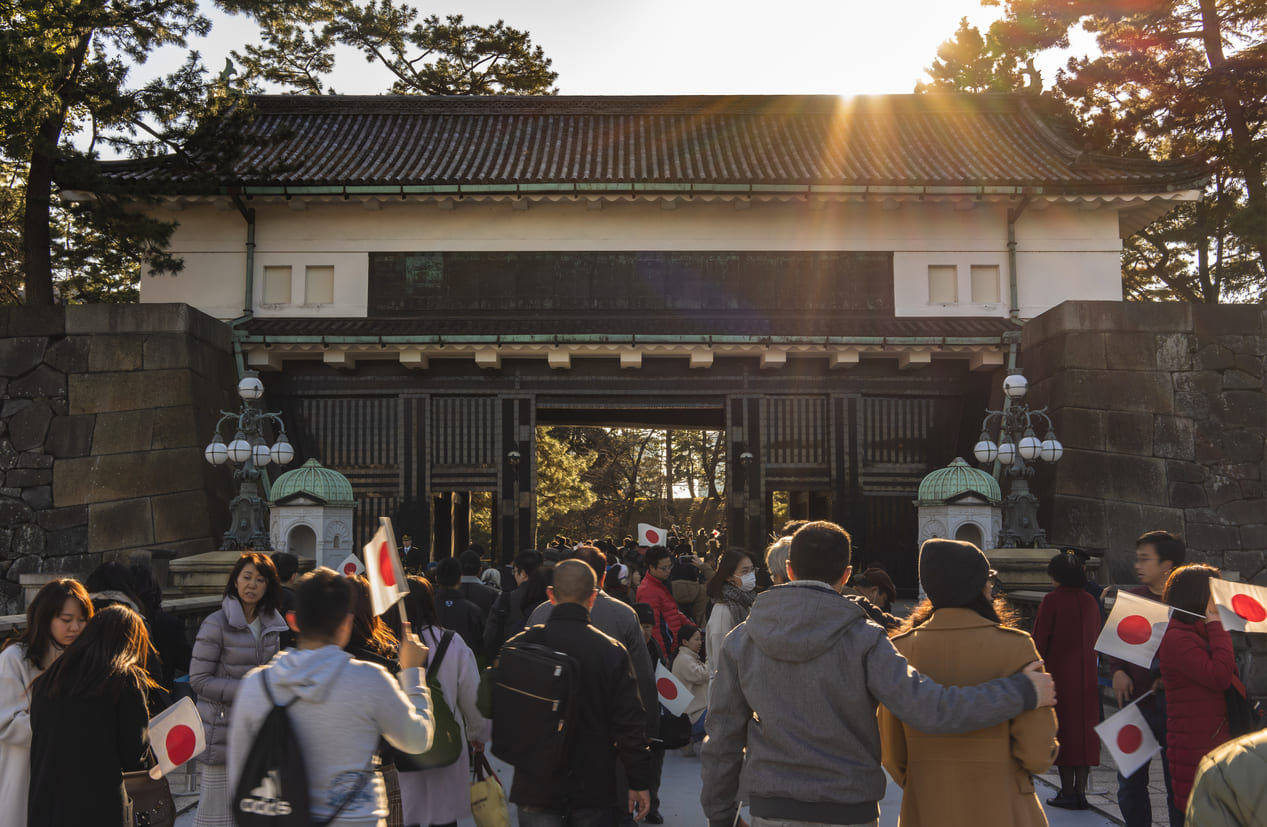Dates of New Year's Eve in Japan
| 2026 | Dec 31 |
| 2025 | Dec 31 |
| 2024 | Dec 31 |
Related Holiday in Japan
Japan Holiday Calendars
New Year's Eve, or Ōmisoka, is a time for reflection, cleaning, and preparing to welcome the new year with a fresh start. Families often share a final meal of the year and many visit temples at midnight to ring the joya no kane, a bell struck 108 times to cleanse worldly desires.
New Year's Eve: A Public Holiday?
New Year's Eve (Ōmisoka) is not an official public holiday in Japan, but it is treated as a bank holiday, with most banks, offices, and businesses closing early or remaining closed as part of the extended New Year season.
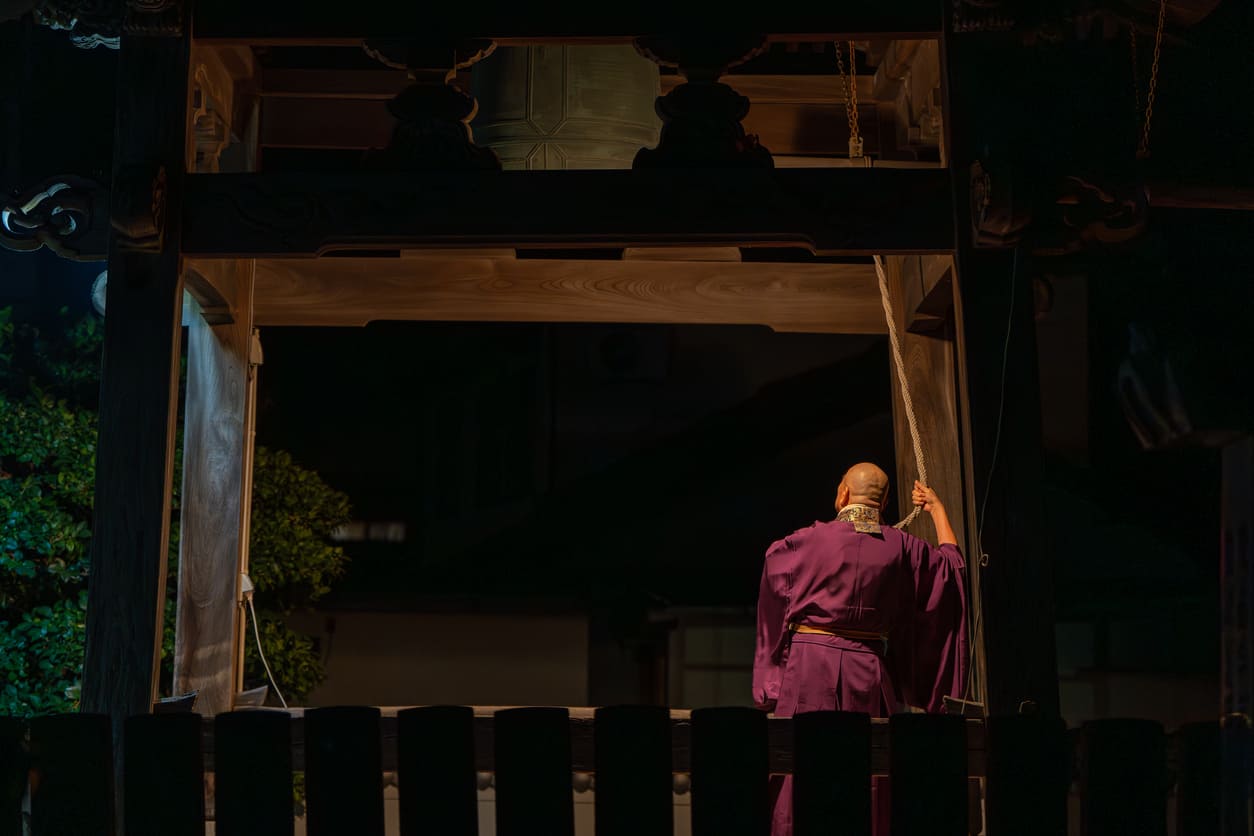
New Year's Eve
New Year's Eve, known as Ōmisoka, has long been an important day in Japanese culture. Its origins go back to the traditional lunar calendar, where it marked the final day of the year. Over time, the customs around Ōmisoka blended native Shinto practices with influences from Buddhism and Chinese tradition. It was a time to reflect, clean the home, settle debts, and prepare for a fresh start. The idea was to leave behind all impurities and negativity before entering the new year.
During the Meiji era, Japan adopted the Gregorian calendar, and January 1 became the official start of the new year. However, the customs associated with Ōmisoka remained strong. It continued to be a deeply meaningful day for families and communities, with preparations for the New Year and rituals for purification and renewal. Though modern life has brought some changes, Ōmisoka is still widely observed across Japan, combining tradition, reflection, and hope for the year ahead.
Observance of New Year's Eve in Japan
New Year's Eve in Japan is a quiet yet meaningful celebration rooted in reflection and preparation. Families clean their homes thoroughly, a practice known as ōsōji, to purify the living space and welcome the new year fresh. Many also pay off debts and complete unfinished tasks, believing it is bad luck to carry old burdens into the new year. This sense of closure helps people mentally and spiritually reset.
In the evening, families gather for a final meal of the year, often including toshikoshi soba or udon. These long noodles symbolize long life and resilience. As midnight approaches, many turn on the television to watch traditional music shows or temple ceremonies. One of the most iconic customs is joya no kane, where Buddhist temples ring their bells 108 times. According to Buddhist belief, this act is meant to cleanse people of the 108 earthly desires, allowing them to enter the new year with a pure heart.
Although not marked with fireworks or loud parties, Ōmisoka holds quiet power in Japanese culture. It is a moment of peace, reflection, and togetherness. It marks the end of one year and the hopeful beginning of another. The emphasis on cleanliness, harmony, and spiritual renewal reflects core values in Japanese life and offers a meaningful way to cross from one year into the next.
New Year's Eve Observances
| Year | Date | Weekday | Name | Holiday Type |
|---|---|---|---|---|
| 2024 | Dec 31 | Tue | New Year's Eve | Bank Holiday |
| 2025 | Dec 31 | Wed | New Year's Eve | Bank Holiday |
| 2026 | Dec 31 | Thu | New Year's Eve | Bank Holiday |
| 2027 | Dec 31 | Fri | New Year's Eve | Bank Holiday |
| 2028 | Dec 31 | Sun | New Year's Eve | Bank Holiday |
